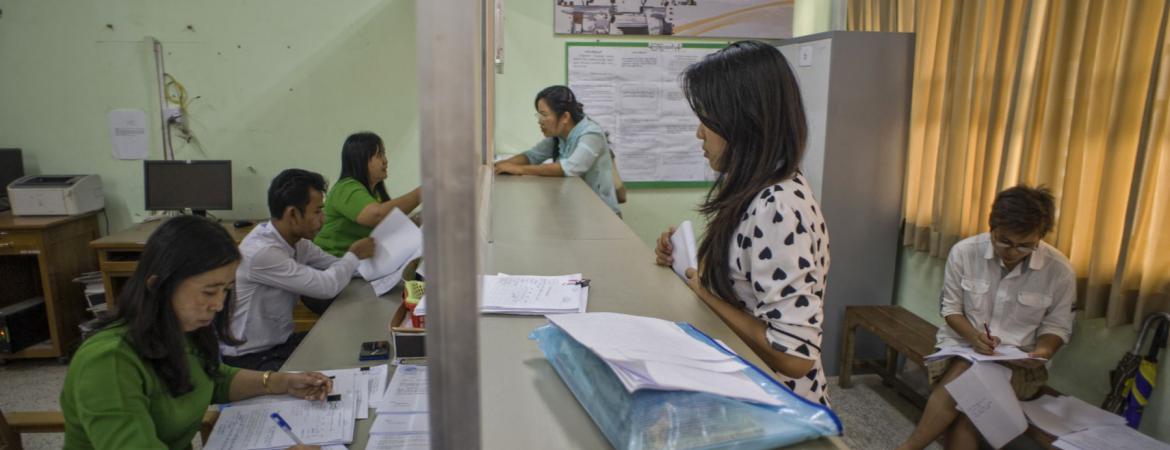All companies need to do re-registration starting from 1 August 2018 when the new Myanmar Companies Law comes into force
26 Jun 2018
The President’s Office issued Notice 48/2018 last Thursday to announce that the new Myanmar Companies Law will go into force on August 1.
The new legislation, enacted in early December last year and spearheaded by the Directorate of Investment and Company Administration (DICA), is a landmark reform which allows domestic businesses to grow by seeking foreign capital and expertise via joint-ventures. It allows foreign entities to take up to a 35-percent stake in domestic companies and opens up the Yangon Stock Exchange for non-Myanmar customers.
Mariano Suarez, partner of Thanlwin Legal, told The Myanmar Times that, for starters, there are two issues all companies must be aware of: the re-registration and change of company documents, as well as the many new requirements and notifications rolling in.
“A company secretary is more necessary than ever. Beyond this, it’s all about foreign ownership and customised share rights!” Mr Suarez commented.
Re-registration
From August onwards, there will be an electronic registry system.
To set up the Myanmar Companies Online (MyCO) electronic registry system, the company affairs divisions of DICA will be temporarily closed on July 23-31, according to the authorities. During that time, company registration and filing processes will be temporarily suspended. All company registration and filing processes will re-commence on August 1 under the new system MyCO.
More importantly, companies registered in Myanmar have until January 31, 2019 to re-register on an electronic system once the new law and related regulations come into effect on August 1. If an existing company does not re-register electronically before that deadline, the registrar may strike its name off the register and announce that the company shall be dissolved, while continuing to enforce the liability of its directors and members.
Investments located in the Thilawa Special Economic Zone (SEZ) also need to re-register through the DICA section of the SEZ’s One Stop Service Centre.
Despite the notification from the President’s Office, some areas of the law may not be immediately implemented on August 1. For example, the new law stipulates that foreign investors will be permitted trade on the YSX. But officials have said that this aspect will take more time to be carried out.
U Htay Chun, member of the Myanmar Securities Exchange Centre (MSEC), explained that once the law is in effect, preparations for foreigners to trade on the YSX will be implemented quickly. But as there are many new processes and changes to be adopted and listed firms need to make adjustments, participation by foreigners at the YSX will “likely be feasible by early 2019”.
Meanwhile, interest to list on the YSX has not been as robust as expected, according to YSX senior executive manager U Thet Tun Oo. U Sai Ohn Myint from Grate Hor Kham Public Co believed the pick-up in interest will materialise once foreigners can trade in the YSX.
Pedro Jose Bernando, a partner at law firm Kelvin Chia, also said in late May that authorities will prioritise implementation of an e-registration system over implementing the 35pc investment threshold. The 35pc rule will likely be rolled out incrementally, to privately-owned Myanmar companies first, before being extended to public-listed companies, if at all.
It appears “they are more concerned now with the implementation of the e-registration system, and not so much with how the substance of the law, including the 35pc threshold will be implemented,” he observed.
Sweeping changes
Nonetheless, the Companies Law will introduce significant changes in the legal definition of foreign companies, the registration process and capital structures, apart from the YSX reforms. Notably, foreign firms no longer need to obtain a permit to trade from the authorities.
The legislation will replace a colonial-era Myanmar Companies Act from 1914 which is replete with antique stipulations – companies have to seek presidential approval to change their names, and court approval to change business objectives. It will govern the registration, ownership, management and internal affairs of all companies in Myanmar.
By streamlining requirements for small and family-owned businesses, improving corporate governance standards, liberalising the economy and removing outdated regulations, the authorities hope this will make it easier for local companies to attract international funding and expertise.
The business community is convinced that the legislation brings about desperately needed reforms for cash-strapped domestic businesses and hence sets the conditions for further economic growth. However, the unanticipated decision by the government to delay implementing the legislation until mid-2018 sparked substantial disappointment among the private sector and has been widely criticised by business leaders.
(The Myanmar Times: https://www.mmtimes.com/news/all-companies-need-re-register-starting-august-1.html )











